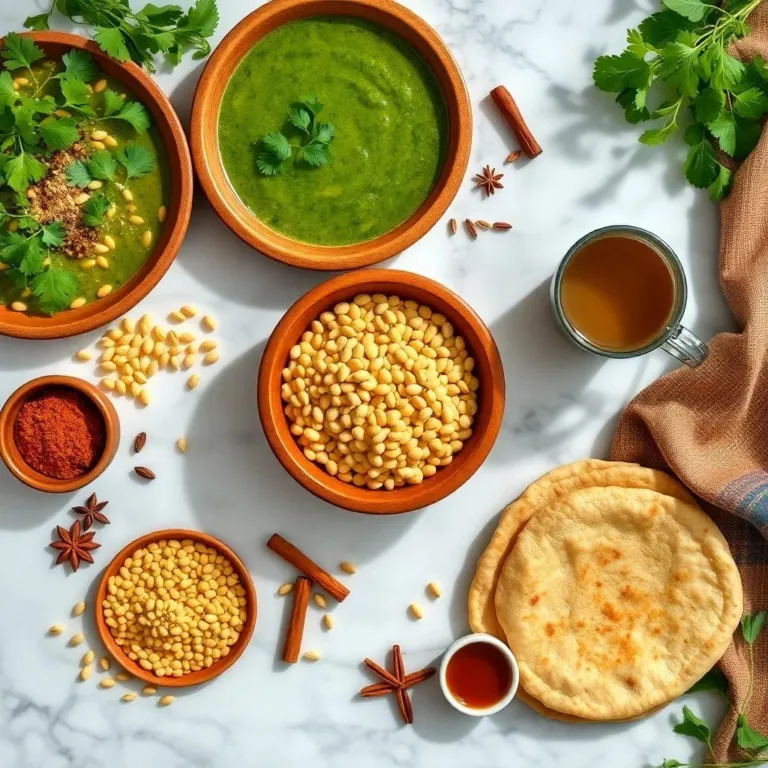Hey there, fellow food lovers! If you’re curious about the tiny yet mighty fenugreek seeds, you’re in for a treat! These little powerhouses are not only packed with flavor but also come with a treasure trove of health benefits. Let’s dive into how you can use them in your cooking, explore traditional remedies, and learn the best ways to store them for freshness! Are you ready to spice up your kitchen adventures?
Health Benefits of Fenugreek Seeds
Let me tell you, fenugreek seeds are like little magic beans packed with health benefits! Seriously, I always keep a jar in my pantry. They can do wonders for your body. Here are some amazing advantages you might want to consider adding these seeds to your diet:
- Digestive Health: You know those uncomfortable moments when your tummy is upset? Fenugreek seeds can help! They have anti-inflammatory properties that soothe your digestive tract, easing symptoms of indigestion. So, next time you’re feeling bloated, try some fenugreek!
- Blood Sugar Regulation: If you or someone you know is managing diabetes, these seeds are a game-changer. The soluble fiber in fenugreek slows down sugar absorption in the bloodstream. This means more stable blood sugar levels! Who wouldn’t want that?
- Heart Health Hero: Fenugreek seeds are rich in fiber and can help lower “bad” LDL cholesterol. It’s like having a little heart-supporting superhero in your kitchen!
- Weight Management: Are you looking to shed a few pounds? Fenugreek seeds can be your ally! They’re low in calories and high in fiber, creating a feeling of fullness and helping control cravings. I mean, who doesn’t love a little help in that area?
- Nourishing Skin and Hair: Not only do these seeds benefit you from the inside, but they can also help you look and feel great outside! The antioxidants in fenugreek fight free radicals, slowing down signs of aging in your skin. Directly applying a paste made of these seeds can strengthen your hair and reduce dandruff. Win-win!
With all these fantastic benefits, it’s no wonder fenugreek seeds are gaining popularity. But remember, results can vary from person to person, so it’s always a good idea to check with a healthcare professional before making changes to your diet!
Culinary Uses of Fenugreek Seeds
Let’s dive into the delicious side of fenugreek seeds! These tiny seeds add a unique flavor to all sorts of dishes. They can take your cooking game up a notch! Here’s how I use them in my kitchen:
- Curries and Gravies: Fenugreek is a superstar in Indian cooking! I love adding a pinch of these seeds to my curries. They give dishes a slightly bitter, earthy flavor that makes my taste buds dance. Trust me, your next curry will thank you!
- Pickles and Chutneys: Want to spice things up? Fenugreek seeds are perfect for pickling! They add a tangy kick that balances sweetness and sourness. Just soak them in vinegar or lemon juice for a while, and then, plop them into your favorite pickle recipe!
- Breads and Flatbreads: Ever tried fenugreek in bread? If not, you’re in for a treat! Ground fenugreek can be added to doughs for flatbreads, like methi parathas. Picture biting into a warm bread with a hint of spice—pure bliss!
- Spice Blends: These seeds are often found in garam masala, which is a staple in many Indian dishes. I love to roast and grind them myself. The aroma that fills the kitchen is simply fabulous!
- Herbal Teas: For a refreshing change, try brewing fenugreek seeds in hot water. It makes a flavorful and aromatic tea that’s great for digestion and has a hint of sweetness to boot!
Using fenugreek seeds in cooking is like adding a little secret ingredient that enhances flavors and gives dishes a unique twist. So, go ahead and get creative! You won’t regret it, I promise!

How to Prepare Fenugreek Seeds for Cooking
Getting fenugreek seeds ready for cooking is super easy! Trust me, once you try it, you’ll want to start using them in all your dishes. Here’s how I prepare these little gems:
- Cleaning: First things first, I always clean my fenugreek seeds. You just want to remove any dirt or debris. I usually place them in a fine-mesh sieve and rinse them under cold, running water. It’s a quick step, but it makes a difference!
- Soaking: Next, I soak the seeds to help soften them and reduce that slightly bitter taste. I fill a bowl with water, add the cleaned seeds, and let them soak for at least 4 to 6 hours, or even overnight if I plan ahead. After soaking, I simply drain the water, and they’re ready to go!
- Drying (Optional): If you prefer to use dried seeds, you can skip soaking. Just spread the cleaned seeds on a clean kitchen towel and let them air-dry. I always keep an eye on them, stirring occasionally to make sure they dry evenly.
Now that you have your fenugreek seeds prepped, you can toss them into curries, breads, or even teas. They’re super versatile, and the flavors that come from them? Oh boy, you’ll be in for a treat!
Traditional Remedies with Fenugreek Seeds
Fenugreek seeds aren’t just great for cooking; they also shine as natural remedies! I love how traditional medicine often leans on nature, and fenugreek is no exception. Here are some ways I use these seeds for health and wellness:
- Immune Boosting Tea: Want to support your immune system? I brew a simple tea by adding a teaspoon of fenugreek seeds to a cup of hot water. After letting it steep for 5-10 minutes, I strain it and sip my way to health!
- Respiratory Relief: Fenugreek seeds can be helpful if you’re dealing with coughs or colds. I boil the seeds in water and then add honey and lemon for flavor. Taking a spoonful helps soothe a raw throat and can ease congestion, too!
- Digestive Aid: I often soak a teaspoon of fenugreek seeds overnight in warm water. In the morning, I strain it and drink the water on an empty stomach. This little routine helps with digestion and keeps everything moving smoothly.
- Topical Uses: For skin irritations or hair care, I make a paste out of soaked fenugreek seeds. I apply this paste to my skin to help soothe inflammation or to my scalp for promoting healthy hair growth. It’s like a mini spa day!
Using fenugreek in these ways is not only simple but also connects you to traditions passed down through generations. Just remember to check with a healthcare professional if you have any underlying conditions before diving into these remedies!
Tips for Storing Fenugreek Seeds
Now that you’ve got your fenugreek seeds prepped and even experimented with some remedies, let’s talk about how to store them! Proper storage keeps them fresh so you can enjoy their flavor and benefits for longer. Here are my top tips:
- Airtight Container: I always transfer my fenugreek seeds to an airtight container. Glass jars work well, and you want to make sure the lid fits snugly! This keeps moisture and air out, which is key to maintaining freshness.
- Cool, Dark Location: I store my seeds in a cool, dark place like my pantry or a cupboard. Avoiding direct sunlight and heat is crucial because these can make the seeds lose their flavor!
- Avoid Moisture: Moisture is the enemy of fenugreek seeds! That’s why I never keep them near the sink or any damp areas. Always make sure they are completely dry before storing them to prevent spoilage.
- Labeling: I like to label my containers with the date! This way, I can keep track of how long they’ve been stored and use them while they’re still fresh!
Following these simple storage tips will help you maintain the quality of your fenugreek seeds, making sure they’re ready to bring their magic to your next cooking adventure!

